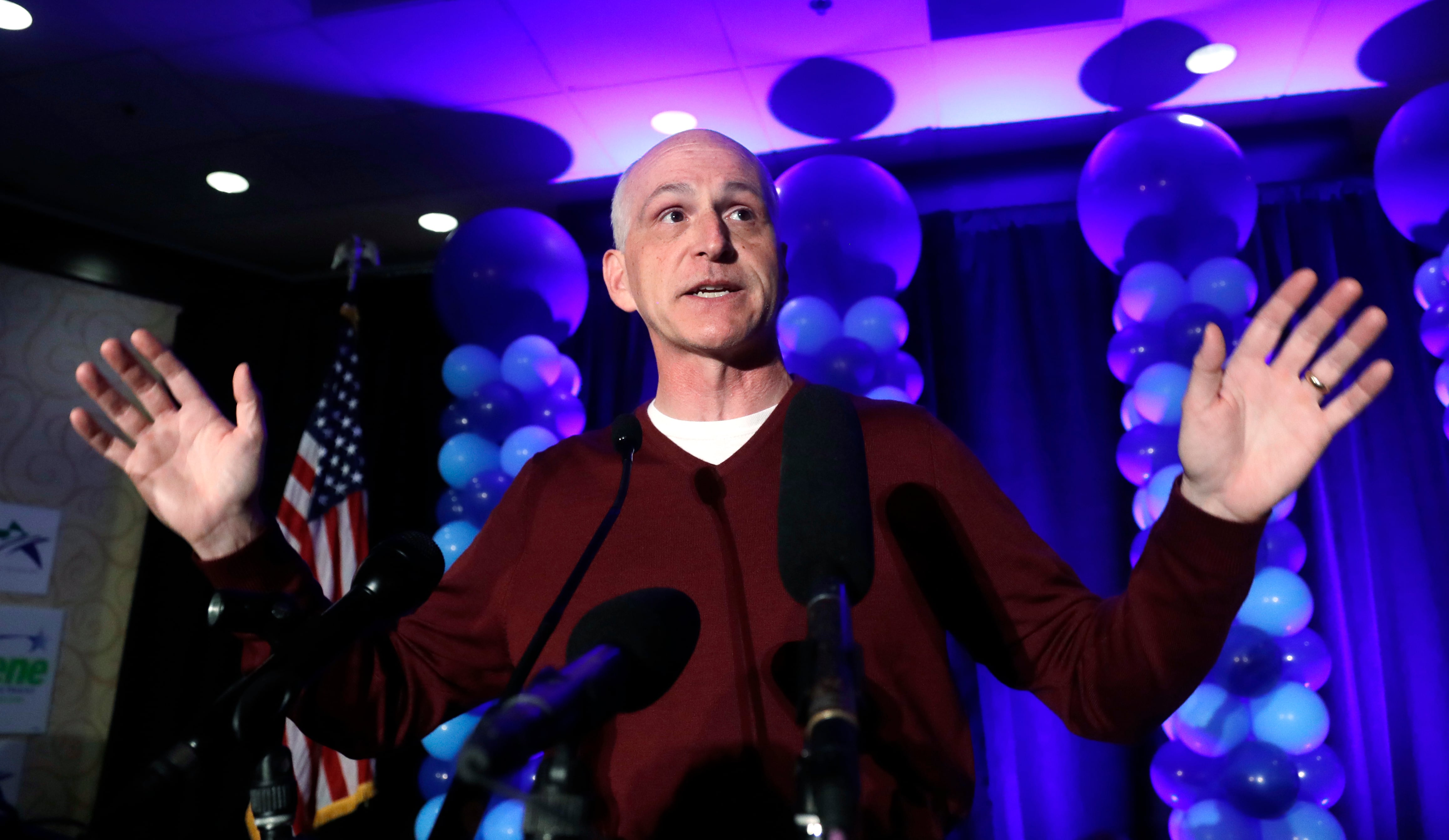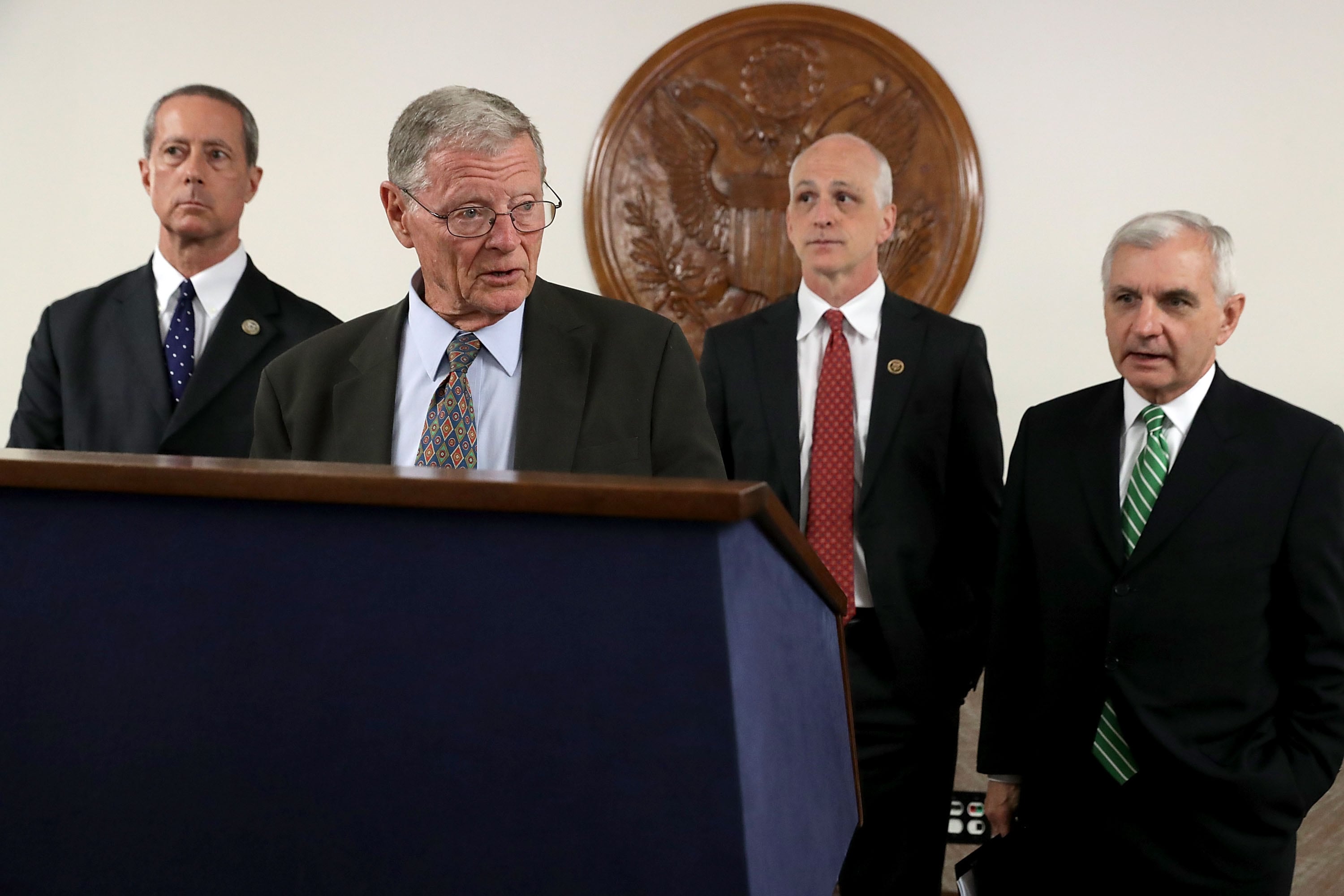WASHINGTON — Adam Smith isn’t arguing that the military already has enough money to face every threat. He’s just pointing out that they’ll never have enough.
“Here’s how the House Armed Services Committee works,” the incoming chairman of the committee told reporters at a recent roundtable event. “We have people from the Pentagon, we have people from think tanks come in and tells us about a threat. They then explain how we are totally unprepared for the threat, there’s a risk we’re all going to die, and they say we have to spend more money.
“That is the entire theme of how 90 percent of the people look at our defense budget: Scare the crap out of you and convince you to spend more money. Some of that is self interest. But the bulk of it is simple paranoia.”
The 53-year-old Smith, entering his 11th term representing in the House next year, has been the Democrats' top voice on defense issues for the last eight years, taking over the committee’s ranking member role amid his party’s congressional defeat in 2010.
RELATED

In that time he has become a vocal but restrained critic of Republican military build-up plans, arguing for more restrained spending but largely backing legislation to add more troops, equipment and programs to Department of Defense.
Now, as Democrats take back control of the House in the 116th Congress, Smith’s role is about to change.
Party leaders already have indicated they’ll look to trimming Pentagon spending to help pay for other domestic priorities, and President Donald Trump’s recent waffling on the fiscal 2020 military budget target (his administration has suggested a range from $700 billion to $750 billion) have created uncertainty around what a divided legislature will deem realistic.
Along with promised hearings on the controversial southwestern border security mission, rules for transgender troops, and downsizing the country’s nuclear weapons arsenal, Smith also has been touting his plans to try and shift broader thinking about how the defense budget works.
He says his goal is not to unilaterally slash spending but to come up with ways to be smarter with how money is allocated.
“I think we can do better,” he said. “I think we can think better about what the threats are," he said. “The world is a dangerous place. You can walk out the front door and get hit by a bus. I could have an aneurysm right now and die. A whole lot can happen. But what is a sensible approach to that?”
RELATED

That means reevaluating military end strength numbers, which rose in recent years as Republican lawmakers argued that the fighting force became too thin. It also means reexamining a host of legacy platforms and equipment purchases.
Smith has called for a more “flexible” force able to adapt to evolving threats, an idea echoed by former President Barack Obama but decried by critics as a way to slash defense spending without acknowledging the added risk.
“What we need to be able to do is be flexible and responsive to what we don’t expect, instead of just spending gobs and gobs of money,” he said. “That’s the way I would like to shift the discussion.
“Is it plausible that the Chinese are going to launch an all-out war against us? Probably not. The Russians? Probably not. Is it plausible they’ll try and mess with our elections through cyber? Yes, so let’s counter that.”
RELATED
Military ‘equality’ issues — including transgender troops — atop Democrats’ 2019 defense agenda
For years, former Defense Secretary Bob Gates used the same quip about military preparedness in his visits to Capitol Hill: The military has a 100-percent record in predicting future conflicts; they’re always wrong.
Smith said the message most listeners took out of that line was that more investment was needed in preventative measures. He took a different lesson.
“Maybe the reason we’ve always been wrong is because these threats are impossible to predict,” he said. “If you spend yourself into massive debt, we’re still going to be wrong. Couldn’t we spend a little less money and still be wrong?”
The incoming chairman said he doesn’t see that philosophical change as an indicator that next year’s annual budget process will become a partisan mess.
At the Reagan National Defense Forum in California earlier this month, Smith and outgoing committee chairman (and incoming ranking member) Mac Thornberry, R-Texas, both said they still expect to get “60 plus” votes for the annual defense authorization legislation during the panel’s annual spring mark-up.
Smith said he finds common ground with Republican leaders on Pentagon acquisition reform, modernization efforts, and readiness spending. He’s pushing for the Pentagon to be able to pass an audit, a favorite topic of a number of conservative members of the committee.
But he also knows that getting colleagues on board with thinking about defense spending differently will be a tricky task.
“I understand I am pushing a significantly large boulder up a significantly large hill,” he said. “I’m up for giving it a shot.”
Leo covers Congress, Veterans Affairs and the White House for Military Times. He has covered Washington, D.C. since 2004, focusing on military personnel and veterans policies. His work has earned numerous honors, including a 2009 Polk award, a 2010 National Headliner Award, the IAVA Leadership in Journalism award and the VFW News Media award.








